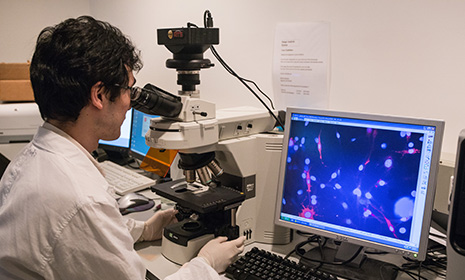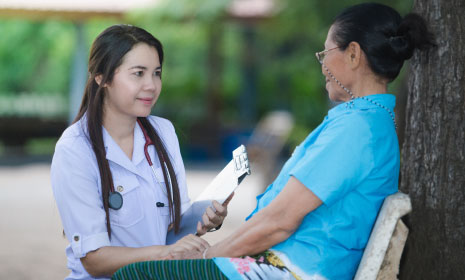Subject Core

Exercise physiology
Course code: EXSC2003
Course coordinator: Dr PMF Siu
This course introduces the key physiological and metabolic responsesto acute and chronic exercise. Students will examine and evaluate changes that occur to various physiological systems during an acute bout of exercise and following a period of exercise training. Emphasis is placed on the respiratory, cardiovascular and musculoskeletal systems in this course.

Exercise Prescription and Training
Course code: EXSC2007
Course coordinator: Dr PMF Siu
This course will introduce the theoretical constructs underpinning exercise prescription and training and equip students with the necessary knowledge and skills to conduct basic pre-participation health screening, assess components of fitness and to design exercise programs for apparently healthy individuals. This course is designed to prepare students for exercise professional accreditation, particularly in becoming an American College of Sports Medicine (ACSM) Certified Personal Trainer.

Foundations of Exercise Science
Course code: EXSC1001
Course coordinator: Dr PMF Siu
Exercise Science is a multidisciplinary field of study encompassing an array of disciplines that contribute to our understanding of human movement. This course will introduce and expose students to the sub-disciplines of exercise science including anatomy, physiology, biomechanics, nutrition in addition to the psychosocial aspects of human health and performance. Theoretical and practical learning in each of these sub-disciplines will be combined with professional awareness and career prospects in the area of exercise and sport science.
Note: This course is a pre-requisite for all Science Core Courses, Subject Core Courses of the curriculum and the Major / Minor in Exercise Science. Enrollment priority will be given to Year 1 and Year 2 undergraduates.

Fundamentals of motor control and learning
Course code: EXSC2001
Course coordinator: Dr TWL Wong
Human movement is a highly complex process. Simply negotiating your way to lectures requires the processing of a host of sensory information, effective decision making, and the coordinated contraction and relaxation of skeletal muscles. This course offers an introductory overview of how we control movement and how we develop and refine our movement skills. Emphasis is placed on basic principles of human movement and their application to health and exercise.

Kinetic anatomy
Course code: EXSC1003
Course coordinator: TBC
This course provides an introduction to the gross anatomy of the human body, with an underlying emphasis on anatomy for human movement. Areas covered usually include the tissue types, the anatomical referencing system, the axial and appendicular skeleton, important nerves, blood vessels and skeletal muscles, and an overview of the heart, lungs and viscera.

Measurement of Physical Activity
Course code: EXSC2006
Course coordinator: Dr SSM Fong
The course aims to develop an understanding of how different aspects of physical activity are assessed. The primary focus of the course is on the objective measurement of physical activity and key areas covered include the measurement of energy expenditure, as well as cardiopulmonary and mechanical responses to physical activity of varying intensities.

Physical Activity and Health
Course code: EXSC1002
Course coordinator: Dr PMF Siu
This course will investigate the role of physical activity (PA) and inactivity in health and wellness, with particular emphasis on the role of physical activity in the prevention and treatment of major non-communicable diseases (NCDs). Key constructs of ‘physical activity’ and “sedentary behaviour’ will be defined, and their surveillance and measurement will be explored. A critical examination of the epidemiological evidence for physical inactivity as a causative factor for various lifestyle-mediated chronic diseases and the effectiveness of PA in the prevention and treatment of these diseases across various populations will be conducted. Finally, students will be exposed to the determinants of PA and sedentary behaviour, the main theories underpinning PA and sedentary behaviour and interventions targeted at changing these behaviours across the lifespan.








.png)
